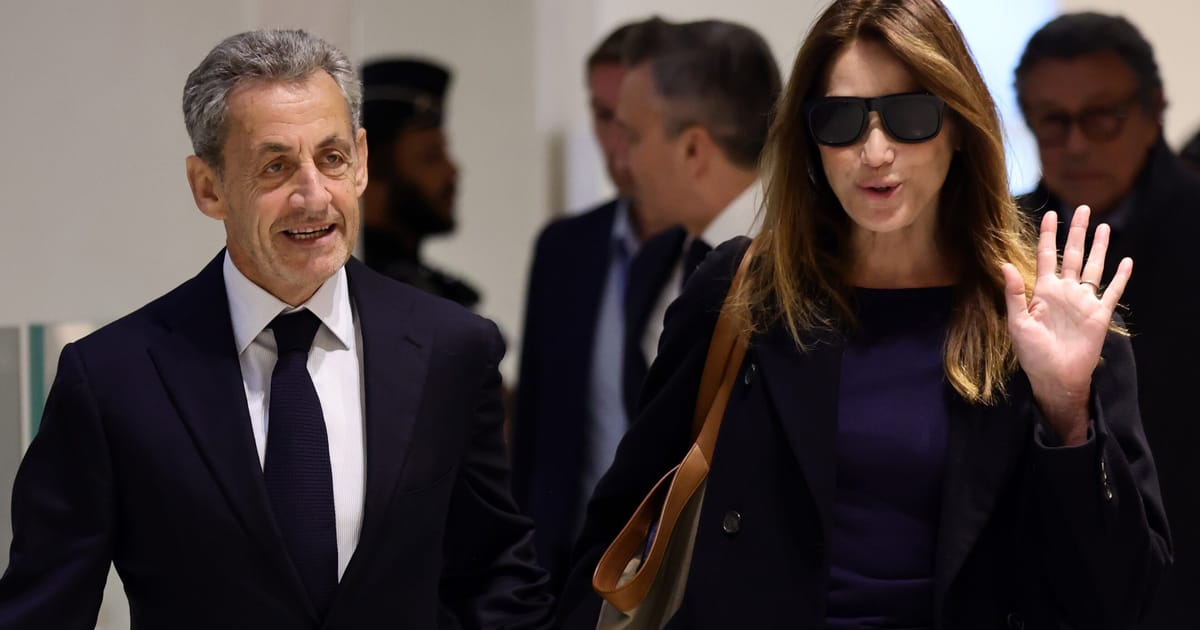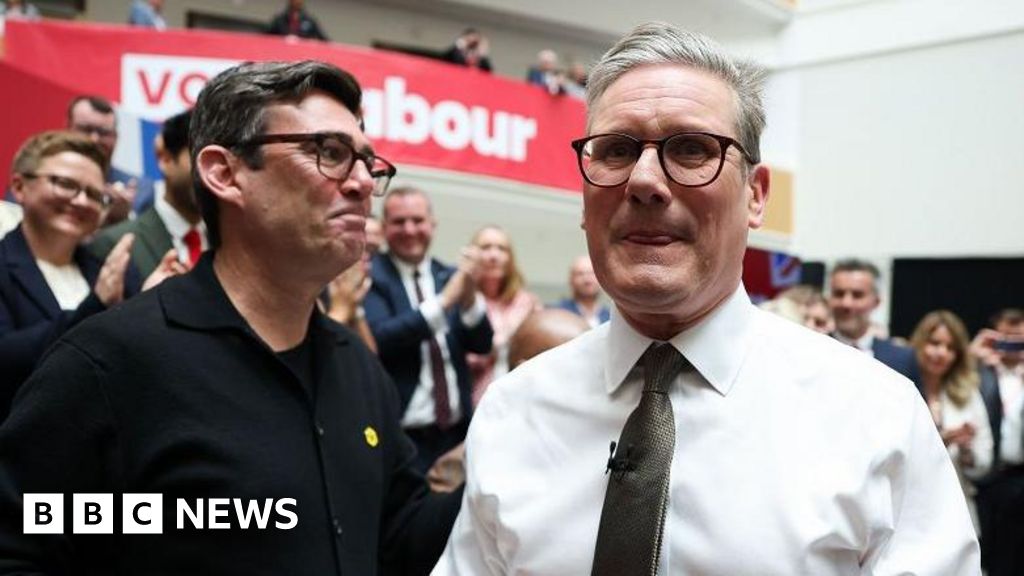Politics
Russia to Trump: We’re a real bear, not a paper tiger
This post was originally published on this site.
Moscow gave Donald Trump a zoology lesson Wednesday, insisting that Russia is “a bear” and not “a paper tiger” on the geopolitical stage.
“Russia is by no means a tiger. Russia is traditionally seen as a bear. There is no such thing as paper bears. Russia is a real bear … There is nothing paper about it,” Kremlin spokesperson Dmitry Peskov said on RBC Radio.
The Kremlin official was responding to Trump’s overtly pro-Ukraine remarks, in which the U.S. president mocked Russia’s failure to win the war swiftly and said Kyiv could get all of its territory back from Moscow’s forces.
The rhetorical shift raised questions around the world over whether Trump has decisively changed posture on the Ukraine war, after months of wooing Russian leader Vladimir Putin and failing to hit Moscow with much-hyped massive sanctions.
Moscow brushed off Trump’s broadside, taking exception to the U.S. president’s remark that “Putin and Russia are in BIG Economic trouble, and this is the time for Ukraine to act.”
Peskov said that despite “certain points of tensions” due to Western sanctions following Russia’s full-scale invasion of Ukraine in 2022, Russia “maintains resilience and macroeconomic stability.”
EU Affairs
Naming and shaming doping athletes is against EU law, says top lawyer

This post was originally published on this site.
Publishing the name of a professional athlete online because they have broken anti-doping rules is against the EU’s privacy laws, a top EU lawyer has said.
The fresh opinion from Advocate General Dean Spielmann weighs a case taking place in Austria, where four professional athletes who have broken anti-doping rules are arguing that publication of their details online would breach the EU’s General Data Protection Regulation.
Austrian law requires details including the athletes’ names, sporting discipline, duration of their exclusion and the reasons for that exclusion to be published on the websites of the Austrian anti-doping agency and an associated legal committee.
EU Affairs
Sarkozy found guilty in Gadhafi case

This post was originally published on this site.
Sarkozy, 70, is still awaiting sentencing but is expected to be able to walk out of court a free man by appealing the verdict, which would push sentencing until after the appeal.
Sarkozy has repeatedly professed his innocence and claimed to be the victim of a smear campaign coordinated by Gadhafi’s allies after the former French president led the NATO effort to overthrow the Libyan dictator in 2011.
The conservative Sarkozy has had repeated run-ins with the law since leaving office — including one corruption case in which he was found guilty and has exhausted his appeals. But the Libyan case contained the most egregious charges and heaviest potential penalties.
This developing story will be updated.
Breaking News
Henry Zeffman: Burnham’s provocative challenge to Starmer shows he is serious

Read more on post.
Location: party conference.
A fairly new prime minister is struggling for popularity with his party and the country at large, against a backdrop of grim economic choices.
A popular, plain-speaking mayor enters the week talked up as a future leader — and is doing little to dampen that speculation himself.
The year is 2012, the prime minister is David Cameron and the mayor is Boris Johnson.
But it could just as well be 2025, Sir Keir Starmer and Andy Burnham.
Sometimes politicians of all parties flirt with the possibility of one day becoming leader in suggestive, coy, almost deniable ways.
This is not an example of that. Burnham is being more overt.
To the Telegraph the Manchester mayor gave a straight answer to a straight question: yes, he had been contacted by Labour MPs “throughout the summer” about the prospect of him returning to Westminster, where he was an MP for 16 years, to lead Labour and replace Starmer as prime minister.
Burnham said this was “more a decision for those people than it is for me”.
Well, up to a point.
Burnham is not an MP. He would have to decide to become one if he wants to be Labour leader and prime minister.
This means that his path to Downing Street is extremely complicated.
First, a Labour MP would need to resign their seat so there is a by-election – unless a contest happened to arise through an MP dying or similar.
Because of Burnham’s distinctive regional pitch, the constituency would surely have to be in Greater Manchester or at least the north-west of England.
Two Manchester Labour MPs, Andrew Gwynne and Graham Stringer, have already ruled out standing down for Burnham.
Then, Burnham would have to be selected as Labour’s candidate.
This would require the approval of Labour’s national executive committee, which for most purposes is controlled by allies of Starmer, although at least some of those would probably support Burnham’s return to Westminster.
Then, he would have to win the by-election in a difficult national political environment for the Labour Party.
And then, finally, Burnham would have to secure the backing of 80 Labour MPs to challenge Starmer – at which point presumably other candidates would enter the fray.
There’s a lot of difficulties along that path.
Still, it is clearly a path that he is willing, at the very least, to publicly entertain.
The mere existence of the Telegraph interview, alongside a long profile in the New Statesman, the bible of left-liberals, is pretty provocative.
Burnham knew that he would be asked questions about his national ambitions, and that they would create a stir in the days before a crucial party conference for Starmer.
Perhaps most notable, though, is that Burnham used both interviews to spell out a policy prospectus: higher council tax on expensive homes, borrowing to invest in council housing, cutting income tax for lower earners and increasing it for higher earners.
In the New Statesman, he said: “We’ve got to get beyond this thing of being in hock to the bond markets”.
That is a direct challenge not just to Starmer but to Chancellor Rachel Reeves and her view – her supporters would say the economic reality – that the government cannot borrow much more money.
It is an argument that quite a few Labour MPs make, mostly in private: that this government has allowed itself to become too constrained by Treasury orthodoxy.
To have Burnham joining that argument publicly, whether his leadership challenge is plausible or not, is unwelcome for Starmer and Reeves.
In government, there is frustration and no small amount of bafflement that Burnham has decided to make these interventions now.
One senior source said he was: “A Boris-sized ego, but without the strategic thought.”
Speaking from the main stage of Conservative conference back in 2012 (an honour not being afforded to Burnham at Labour’s conference next week), Boris Johnson ended up rallying the members behind David Cameron.
It took him seven years to get to No 10.
It’s hard to see the Starmer and Burnham story taking quite so long to play out, whatever the ultimate conclusion.
-
Culture2 days ago
Taylor Swift’s new cinema outing generates more than €12million in just 24 hours
-
Politics2 days ago
European Parliament snubs Orbán with vote to shield Italian MEP from Hungarian arrest
-
Health3 days ago
EU renews support for WHO’s Universal Health Coverage Partnership
-
Culture2 days ago
Milan Fashion Week 2025: Unmissable shows and Giorgio Armani in mind
-
Opinion2 days ago
AI Is Pointless If It Doesn’t Boost Productivity
-
Environment1 week ago
Chimps drinking a lager a day in ripe fruit, study finds
-
Culture2 days ago
Traitors Ireland finale: A tense and thrilling conclusion to a spectacular first season
-
Culture2 days ago
‘The Mona Lisa of Pop’: David Bowie’s ‘Aladdin Sane’ artwork set to break auction record


































